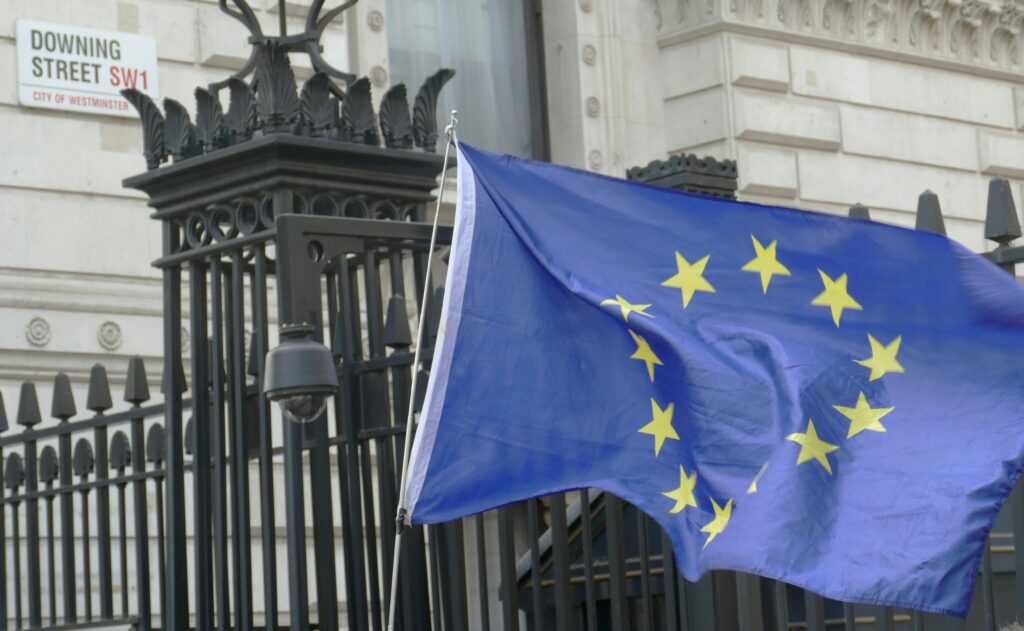The second term for President Donald Trump in 2025 has raised significant questions about how his policies will impact global markets, especially in the United Kingdom (UK) and the European Union (EU). The business world is watching closely, as Trump’s economic and foreign policy decisions could have far-reaching consequences for trade relations, regulatory frameworks, and investment climates across the Atlantic. As we move further into 2025, it is crucial for business leaders and policymakers to understand the potential implications of a Trump presidency on both UK and EU businesses.
The Return of Protectionism
One of the most significant impacts of Donald Trump’s first term on the global business landscape was his ‘America First’ approach, which emphasised protectionism and the renegotiation of trade agreements. This policy framework is likely to persist in a second term, with further tariff impositions and potential trade disputes. The UK and EU will both feel the ripple effects of any protectionist measures Trump may implement, such as increased tariffs on goods imported from these regions.
Trade Barriers and Tariffs
During his first term, Trump imposed tariffs on a range of imports, including steel and aluminium, from the EU and other regions. In 2025, it is expected that these tariffs could be expanded, particularly in the context of ongoing tensions over trade imbalances and concerns about national security. The UK, still navigating its post-Brexit trade relationships, would likely face more scrutiny under Trump’s administration.
Trump’s trade war with China may also create ripple effects for businesses in the UK and EU, especially those heavily reliant on Chinese manufacturing or exports to China. With supply chains interconnected across global markets, businesses in these regions must remain agile to mitigate the impact of any new tariffs or restrictions on China. Additionally, Trump’s frequent criticism of the World Trade Organization (WTO) and multilateral trade agreements could lead to further fragmentation of global trade policies, further complicating cross-border transactions for businesses in the UK and EU.
Impact on Post-Brexit UK-EU Relations
Trump’s stance on international trade and alliances could also influence the UK’s trade post-Brexit. A second term for Trump could increase pressure on the UK to strengthen its relationship with the United States, potentially sidelining its ties with the EU in some respects. As Britain seeks to establish new trade agreements following its departure from the European Union, a close relationship with the Trump administration may cause trade deals that favour US businesses, at the expense of EU businesses.
For instance, Trump may push for a US-UK trade deal that prioritises sectors in which American companies have a competitive advantage, such as pharmaceuticals, tech, and agriculture. The potential for such a deal could be seen as a double-edged sword. While it could open up lucrative markets for UK businesses, particularly in the tech sector, it could also expose European firms to tougher competition as UK businesses increasingly align with the US market.
Furthermore, Trump’s past advocacy for tariffs on European goods may make it harder for UK businesses to fully benefit from any new trade agreements. While there are clear advantages in deepening UK-US ties, such a relationship may inadvertently exacerbate divisions between the UK and the EU, potentially stalling any potential EU-UK rapprochement. The EU, for its part, may feel increasingly isolated in a world dominated by US trade preferences.
US Foreign Policy: Geopolitical Tensions and their Business Consequences
One of the most notable aspects of Trump’s first presidency was his ‘America First’ foreign policy, which was often characterised by unilateral action, withdrawal from international agreements, and a more adversarial approach to traditional allies. The EU and the UK were not immune to these shifts, with Trump’s withdrawal from the Paris Agreement on climate change and his scepticism towards NATO raising concerns among European business leaders.
In a second term, it is likely that Trump would continue to prioritise US interests over multilateral cooperation, which could have far-reaching consequences for business stability in the UK and EU. For example, the US’s stance on climate change policy is expected to influence global regulatory frameworks on sustainability. If the US does not adopt stricter environmental regulations, businesses in the EU, where environmental standards are high, may face competitive disadvantages. Similarly, the UK may have to balance its own environmental goals with the demands of its US trade partners.
Regulatory Divergence and Business Uncertainty
Another key area where the Trump administration could affect UK and EU business is in the regulatory landscape. As the UK and EU continue to diverge from each other post-Brexit, any regulatory shifts in the US could add another layer of complexity for businesses seeking to operate across these regions.
For instance, Trump has consistently shown scepticism towards stringent regulations on issues such as data privacy, financial services, and labour laws. Should the US deregulate industries like technology, finance, or healthcare, businesses in the UK and EU could find themselves at a disadvantage if they are required to adhere to stricter regulatory frameworks. Additionally, Trump’s historical approach to big tech companies, especially those based in the EU, has raised concerns about future US-EU regulatory tensions, particularly regarding data privacy laws and antitrust regulations.
Energy and Supply Chain Impact
Energy policies throughout Trump’s second term could also influence UK and EU businesses, particularly in the energy sector. The US has already become a significant exporter of energy resources, especially liquefied natural gas (LNG). In 2025, the UK and EU could face challenges in managing the global supply of energy, especially if Trump continues to champion the American energy industry and increases export volumes. Conversely, if the US continues its support of fossil fuels, it may delay the transition to cleaner energy alternatives, potentially causing friction with European businesses that have committed to sustainability goals.
Moreover, Trump’s stance on international trade agreements and tariffs may affect supply chains across the UK, EU, and US. Businesses that rely on cross-border trade may experience delays or increased costs due to potential trade restrictions. In 2025, businesses should prepare for fluctuating costs and increased uncertainty in global supply chains.
Economic Growth and Financial Markets
Economically, the potential for a second Trump presidency will bring a new set of expectations for the UK and EU markets. During his first term, Trump’s administration focused on tax cuts, deregulation, and pro-business policies aimed at spurring growth in the US. However, these policies were often controversial, and their effects were mixed, with some businesses benefiting and others facing greater scrutiny.
In 2025, it’s likely that the Trump administration will continue to favour tax cuts and business incentives that favour US-based companies. This could cause a shift in investment flows, with US firms potentially having an edge in attracting capital compared to their European counterparts. As a result, UK and EU businesses may need to become more competitive in terms of innovation, pricing strategies, and overall business models to remain attractive to investors.
Conclusion
In summary, the implications of a Trump presidency for UK and EU businesses throughout 2025 will be multifaceted. While closer US-UK relations could bring new opportunities, the prospect of increased protectionism, regulatory divergence, and potential trade barriers poses significant challenges. EU businesses, on the other hand, may face obstacles in their interactions with both the US and the UK as trade relationships continue to evolve.
In a landscape marked by uncertainty, it will be crucial for businesses in the UK and EU to stay agile, reassess their international strategies, and prepare for the possible changes in US policies. The global business environment in 2025 will be shaped by political and economic decisions made across the Atlantic, and understanding these shifts will be key for companies looking to thrive in the evolving international marketplace.






